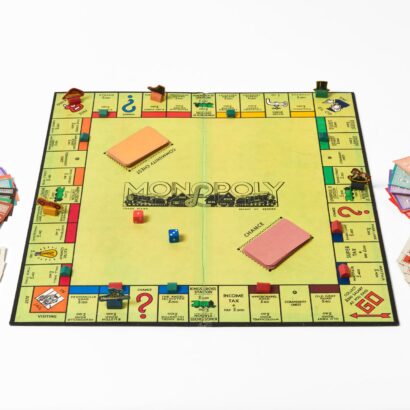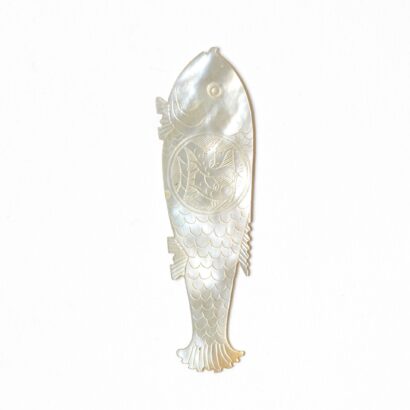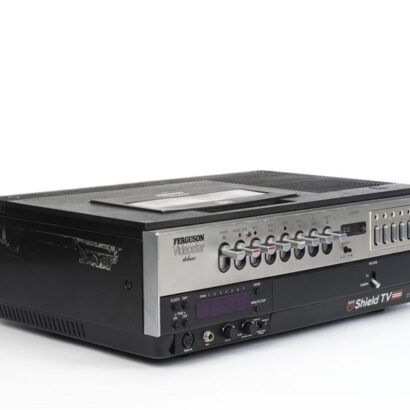Just a few centuries ago, leisure was a luxury reserved only for the most privileged in society. But from the 1700s people found themselves with more time and money to spend. Since then, countless games and devices have been invented to keep us entertained.
Many of them have significantly changed the way we live and interact with each other at home and beyond. Board games or binge watching Netflix: what’s your favourite way to stay entertained at home?
Objects to look out for

Monopoly, about 1939-1945
Monopoly is one of the most played board games in the world, with the British edition first appearing in 1935. Originally called ‘The Landlord’s Game’, it was intended to be an anti-monopolist educational tool. This set, produced during the Second World War, substituted card pieces for the original metal trinkets, and a spinner for dice, as materials were in short supply.
Monopoly, c.1939-1945, Object number 4139.1

Fish game counters, about 1750–1850
As card playing became integral to entertaining guests in the home, demand grew for ornate Chinese game counters, such as these fish, to mark winnings.
Fish game counters, c. 1750–1850, Object number MI 398-1

Ferguson Unit Audio Stereo System, 1968
In the late 1960s the hi-fi began selling in large numbers. It provided a complete home audio system with a radio, record player, amplifier and stereo speakers. Norman bought this Ferguson hi-fi in 1968: its simple design allowed the whole family to use it. Norman’s son Russell even learned to play the drums after using the hi-fi to play tutorial records.
Ferguson Unit Audio Stereo System, 1968

Free digital guide
Explore Museum of the Home with our digital guide on Bloomberg Connects, the free arts and culture app.
